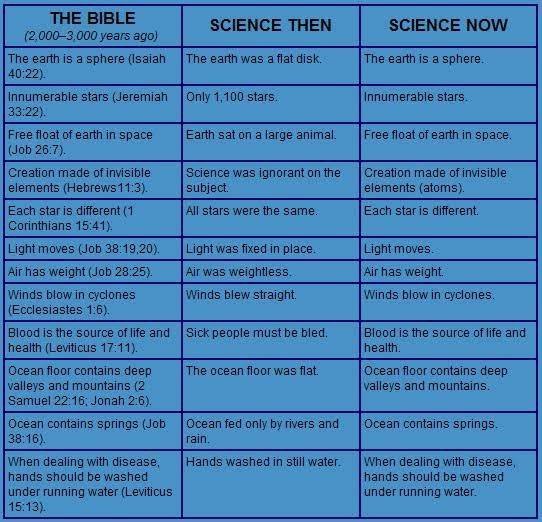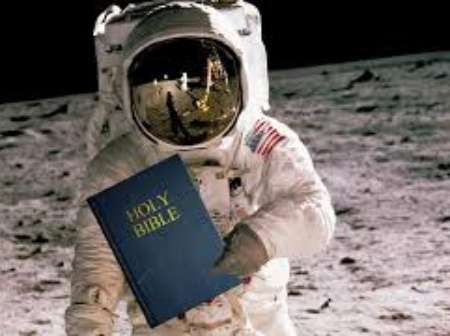Have today scientific discovery proved the Bible wrong
HAVE scientists and Bible critics really proved that the Bible contains errors and fiction? Before you accept that they have, you should remember that although many scholars present their opinions in a positive and authoritative way, they are not always right. Often their ideas rest on shaky foundations.
Dubious Presuppositions
As an example of an authoritative-sounding statement by a Bible critic, consider what S. R. Driver said about the book of Daniel.
Traditionally, this book has been considered to have been written by Daniel himself in Babylon in the sixth century B.C.E. (Daniel 12:8, 9) But Driver claimed that it was written much later than that. Why? One “proof” offered was that the book contains Greek words, and Driver asserted: “These words, it may be confidently affirmed, could not have been used in the Book of Daniel unless it had been written after the dissemination of Greek influences in Asia through the conquests of Alexander the Great.” Alexander made his conquests about 330 B.C.E.

Driver’s statement could not be more positive. Yet, to back it up, he mentions only three Greek words, all of them names of musical instruments. (Daniel 3:5) Since the Greeks had close contact with western Asia from early in recorded history, how can anyone validly assert that musical instruments with Greek names were not used in Babylon in the sixth century B.C.E.? What a flimsy basis for querying the timing and writership of the book of Daniel!
READ ALSO: 7 Things You Love That Bible Banned
Another example is the treatment of the first five books of the Bible. Traditionally, these are said to have been written for the most part by Moses about 1500 B.C.E. However, critics claim to see different writing styles in the books.
Also, they note that God is sometimes referred to by his name, Jehovah, and sometimes by the Hebrew word for “God.” From such observations they deduce that these Bible books are really an amalgamation of documents written at different times and put in final form some time after 537 B.C.E.
This theory is widely believed, yet no one has explained why Moses could not refer to the Creator both as God and as Jehovah. No one has proved that he could not write in different styles if he was treating different subjects, writing at different times in his life, or using earlier sources. Moreover, as John Romer said in his book Testament—The Bible and History: “A fundamental objection to this whole method of analysis is that to this day not one scrap of ancient text has been found to prove the existence of the theoretical strands of different texts so beloved of modern scholarship.”
1 Bible Chapter Bishop Oyedepo Will Never Read To His Church Members
A basic assumption of many Bible critics is explained by McClintock and Strong’s Cyclopedia: “Investigators . . . start from the assumption that the facts of history which lie behind the narratives are purely natural facts, similar in nature to other facts known to us. . . . Does a writer state as fact an event which lies outside the range of known laws of Nature? Then . . . the alleged event [did] not happen.”
Thus, many suppose that miracles could not have happened, since they lie outside the range of known laws of nature. Similarly, long-term prophecies must be impossible, since humans cannot see far into the future.

Any miracle must be a legend or a myth.
Any prophecy that was clearly fulfilled must have been written after its fulfillment.* Hence, some argue that the prophecies of the book of Daniel were fulfilled by the second century B.C.E. and that the book must therefore have been written then.
But this kind of presupposition depends upon an article of faith: that God does not exist, or if he does, he never intervenes in human history. Surely, the whole point of the Bible is that God does exist and is active in human history. If this is true—and the evidence shows that it is—much of the basis of modern Bible criticism is invalidated.
Has Modern Science Shown the Bible to Be Wrong?
What, though, of the claim that science has shown that we cannot believe the Bible? The truth is, when the Bible touches on what we call science, most of the time what it says is not out of harmony with what modern scientists teach.
Another Virus Discovered In Brazil, More Deadly Than Coronavirus
For example, the Bible gives very practical commands relating to hygiene and communicable diseases.
The book Manual of Tropical Medicine comments: “No one can fail to be impressed by the careful hygienic precautions of the Mosaic period. . . . It is true that the classification of disease was very simple—[namely] into acute disorders, called ‘plague’; and chronic disorders, with some sort of eruption, called ‘leprosy’—but the extremely stringent quarantine rules very likely did a great deal of good.”
Consider, too, the Bible’s statement: “All the winter torrents are going forth to the sea, yet the sea itself is not full.
To the place where the winter torrents are going forth, there they are returning so as to go forth.” (Ecclesiastes 1:7) This sounds like the description of the water cycle found in textbooks today. The rivers deliver water into the sea, where it evaporates and is carried in the form of clouds back over the land, to fall as rain or snow and run back into the rivers.
Similarly, the conclusions of scientists that mountains rise and fall and that at one time today’s mountains were under ancient seas harmonize with the poetic words of the psalmist: “The waters were standing above the very mountains. Mountains proceeded to ascend, valley plains proceeded to descend—to the place that you have founded for them.”—Psalm 104:6, 8.
One writer asserted: “All the writers of the Old Testament regarded the Earth as a flat plate, and they sometimes referred to the pillars which were supposed to support it.”
This is not true, though. Isaiah spoke of the “One who is dwelling above the circle of the earth.” (Isaiah 40:22) And Job said of this One: “He is stretching out the north over the empty place, hanging the earth upon nothing.” (Job 26:7) The description of the earth as a round body suspended in space with no visible support sounds remarkably modern.
Evolution
What about the contradiction between the Bible and the theory of evolution?* The Encyclopædia Britannica reports: “The theory of evolution is accepted by the overwhelming majority of the scientific community.” But the Bible teaches, in language simple enough to be understood in a prescientific age, that life is a result of direct creation by God and that the different basic kinds of life did not evolve but were created.—Genesis 1:1; 2:7.
Evolutionists are not unlike Bible critics. They have strong convictions and express themselves authoritatively.
But a few are honest enough to admit that the evolution theory has weaknesses. One points out: “Darwin’s model of evolution . . . , being basically a theory of historical reconstruction, . . . is impossible to verify by experiment or direct observation as is normal in science . . . Moreover, the theory of evolution deals with a series of unique events, the origin of life, the origin of intelligence and so on. Unique events are unrepeatable and cannot be subjected to any sort of experimental investigation.” (Evolution: A Theory in Crisis, by Michael Denton) Another speaks of “the fact of evolution.” Nevertheless, he points up a major difficulty in proving this “fact”: “When you look for links between major groups of animals, they simply aren’t there.”—The Neck of the Giraffe, by Francis Hitching.
How Much Can They Know?
Much of the evidence for evolution is presented by geologists and paleontologists—scientists who study the ancient past of the earth. The problems faced by these scientists is not unlike the problem faced by astronomers. With the help of different kinds of instruments, astronomers look at the radiation coming over immense distances from stars, planets, galaxies, and exotic bodies such as quasars. Making the most of the information available, they develop theories about such profound things as the nature of stars and the origin of the universe.
They rarely have the opportunity to check their theories, but when they do, they often find them inadequate or just plain wrong.
Radio astronomer Gerrit Verschuur wrote: “The recent U.S. planetary probes revealed a shocking paucity of real knowledge about the contents of the cosmos. Up close, Mars turned out to be far different from anything we could have pictured from earth. . . . No astronomer anticipated that the belts of Jupiter would have quite such a fantastic structure . . . Saturn provided the biggest surprises when Voyager’s cameras revealed braided rings, leapfrogging moons and more than 1,000 ringlets. . . . What’s true of space seems to be true of laboratory specimens photographed under ever-increasing magnification. Each closer look reveals totally unexpected information that confounds us and alters our previous beliefs.”
Geologists, paleontologists, and others who provide much of the “proof” of evolution are, like astronomers, concerned with events and things that are very remote—not in distance but in years. Just as astronomers rely for their information on the dim radiation coming over unimaginable distances, these other scientists are forced to rely on the traces that have survived by accident from the distant past of our planet. Inevitably, like astronomers, they too must be wrong in many of their conclusions.
Can You Believe the Bible?
Hence, thinking people need not be overawed by scholarly opinions to the effect that you cannot believe the Bible. However, this does not in itself prove that you can believe it. For that, you need to do what many of the Bible’s critics have not done—open the Bible for yourself, and read it with an open mind. (Acts 17:11) Some years ago, an Australian scriptwriter, who used to be a critic of the Bible, confessed: “For the first time in my life I did what is normally a reporter’s first duty: checked my facts. . . . And I was appalled, because what I was reading [in the Gospel accounts] was not legend and it was not naturalistic fiction. It was reporting. First and second-hand accounts of extraordinary events. . . . Reporting has a taste, and that taste is in the Gospels.”
We encourage you to follow his example. Read the Bible for yourself. When you consider the deep wisdom of the Bible, the way its prophecies are fulfilled, and its astounding unity, you will realize that it is more than just a collection of unscientific myths. (Joshua 23:14) When you see for yourself the way the wisdom of the Bible can change your life for the better, you will have no doubt whatsoever that the Bible is God’s Word. (2 Timothy 3:16, 17) Yes, you can believe the Bible!—John 17:17.
Follow Us On Facebook

